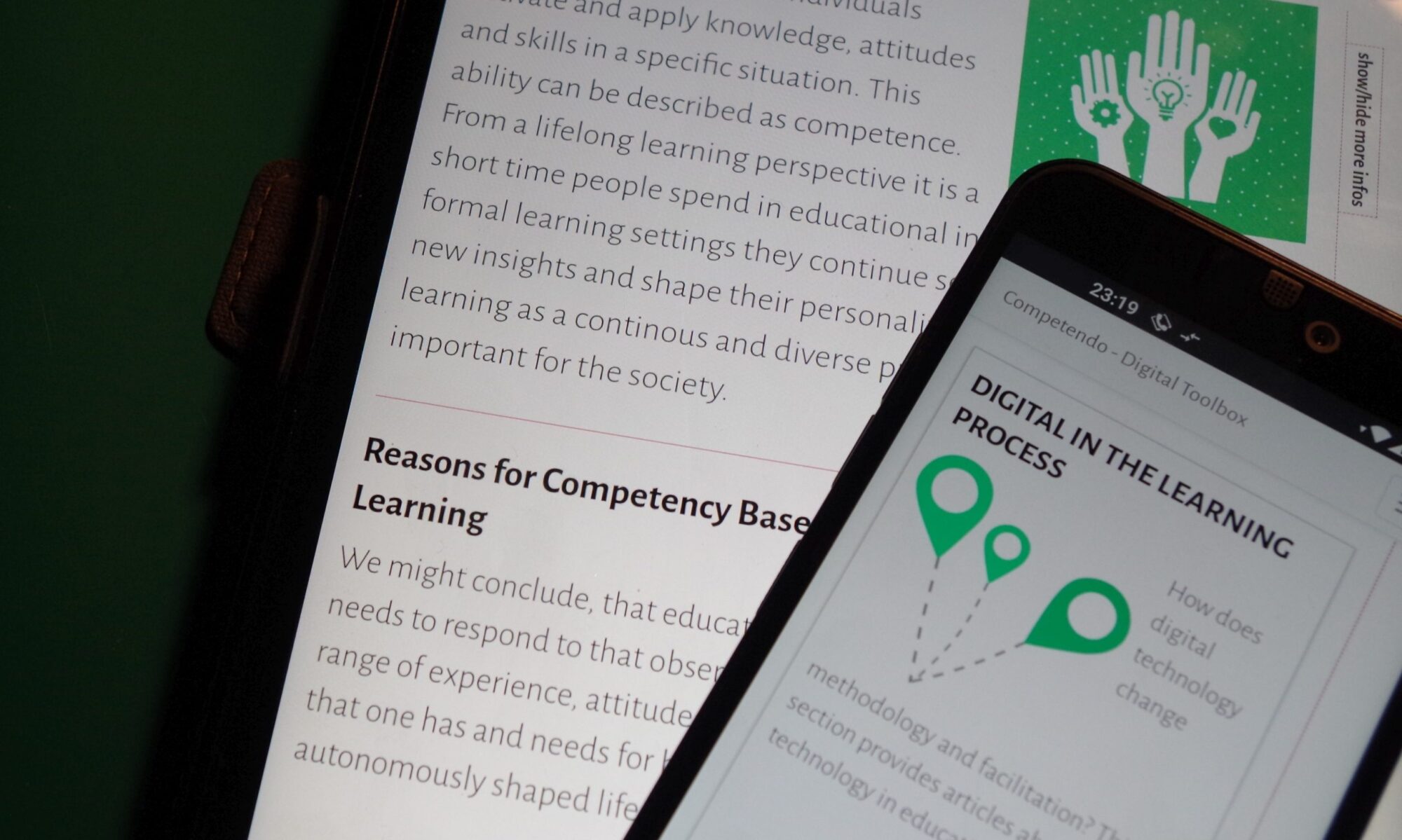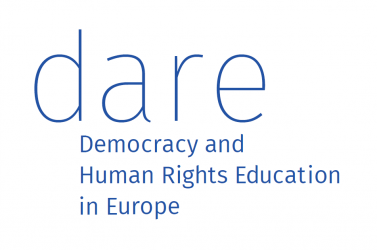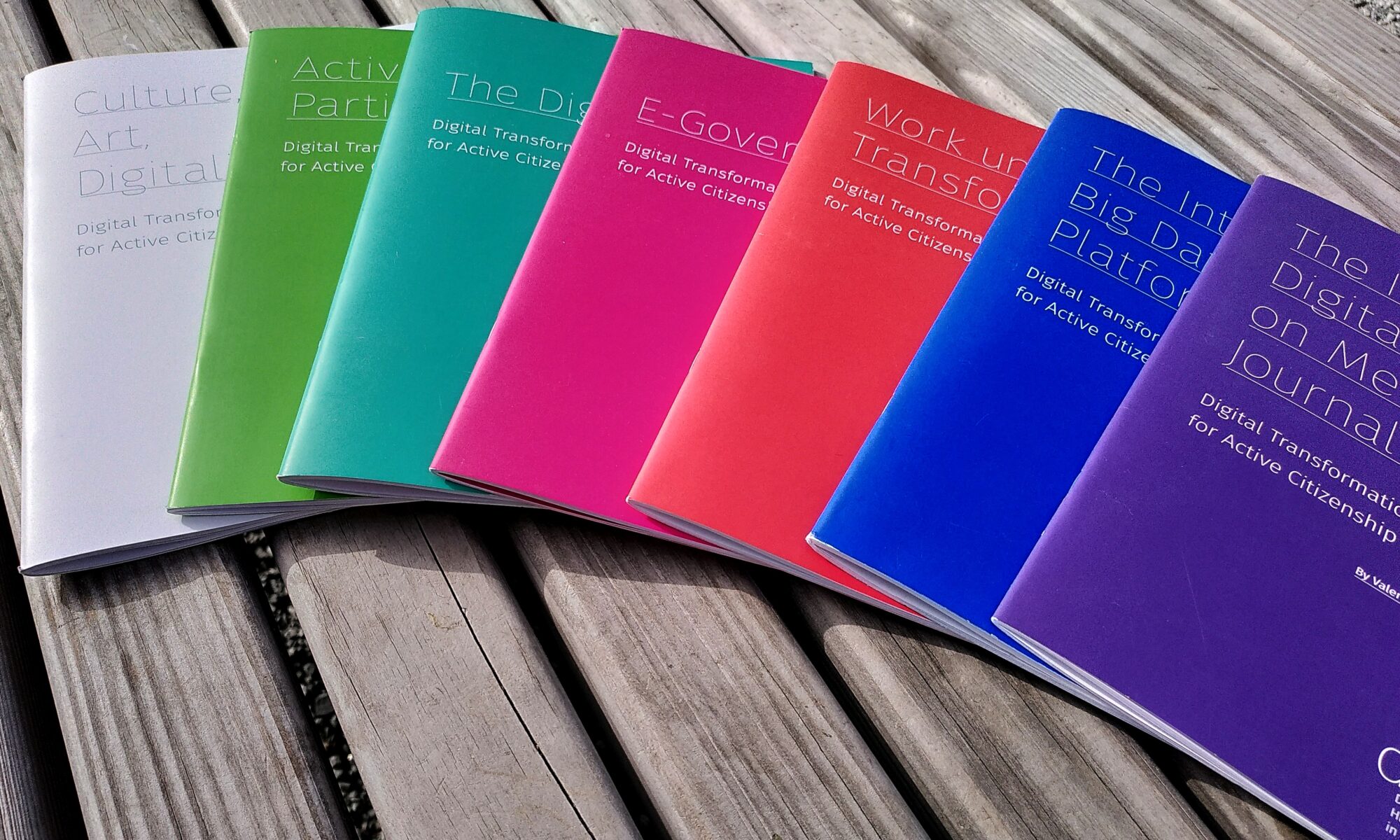Our series “Smart City – Smart Teaching” explores digital transformation as a topic in education in all ages and under a lifelong learning perspective. The focus is set on learning for democratic citizenship and the necessary digital transformation competencies. They are published under a Creative Commons License CC BY SA 4.0 within the project DIGIT-AL – Digital Transformation in Adult Learning for Acvtive Citizenship.
- Easy introductions into selected aspects of digitalisation
- For educators or teachers in different contexts of education
- You might use and share the texts. They are free Open Source.
- Online and App: Integrated in: Digital Toolbox Competendo
Download
Download the PDFs:
At DIGIT-AL project’s website: https://dttools.eu
Work under Transformation
N. Zimmermann (ed.), 52 p.
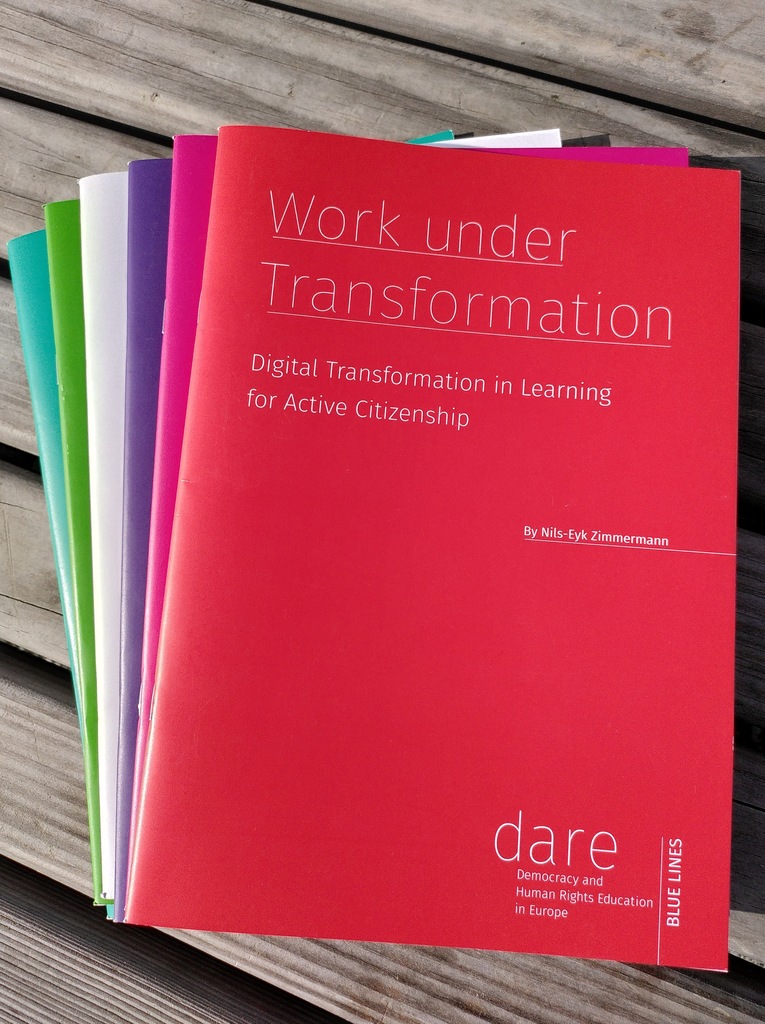
Platformisation of the European economy, automatisation, additive factoring and the (global) redefinition of value chains and collaboration processes are digital drivers of industrial transformation. Obviously, these developments also have an impact on concrete working conditions, although the differences among countries and also sectors are remarkable. Working spaces have also become more technologically enhanced. One result of digitalisation and rationalisation is job polarisation, an increase of high-profile and low-profile jobs while those in the middle vanish. On the other hand, platforms are creating a new kind of working environment. In particular this brochure also highlights how education policies and training strategies might respond to these challenges. It ends with scenarios in regard to (un)employment and labour and with the idea of a universal basic income, which has received increasing support thanks to discussions about digital transformation.
Media & Journalism
V. Vivona, N. Caranti (ed.), 44 p.
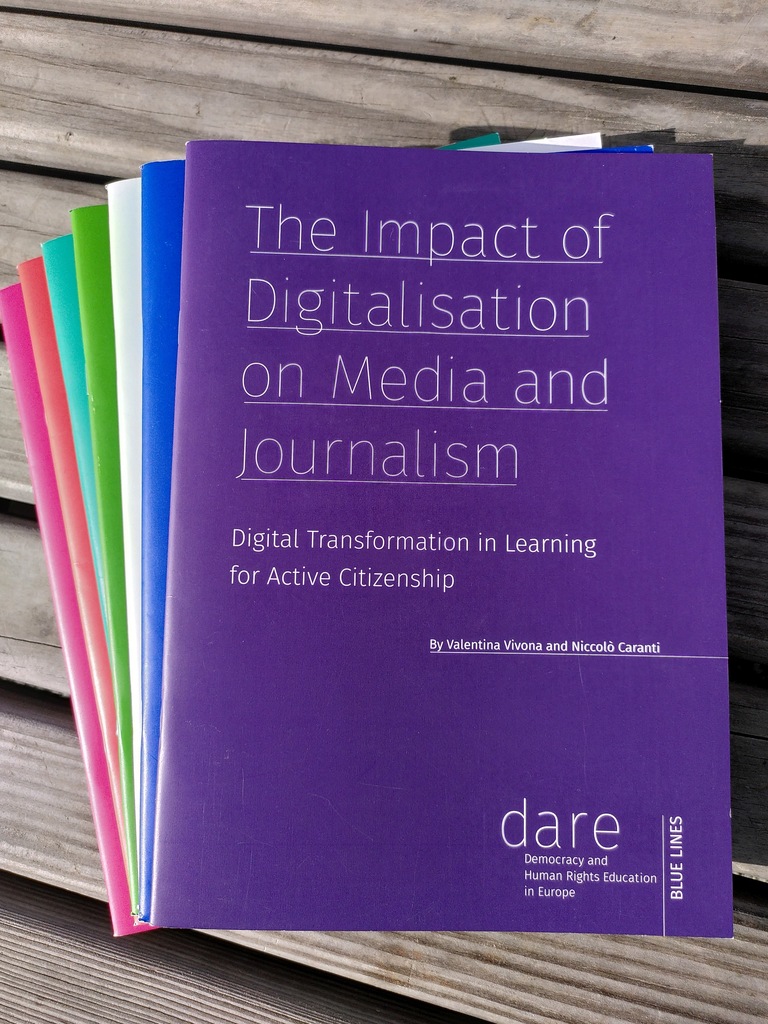
Digitalisation has changed journalism in the last two decades. The digital revolution has created a high-choice media environment, and one of the consequences has been (paradoxically?) news avoidance. Another appearance in recent years has been so-called “fake news” or “disinformation” which we discuss under the topic “information disorder”, which has a wider meaning.
Next, we examine new information models as possible ways out, including investigative journalism, explanatory reporting, solutions journalism, constructive journalism, and data journalism. Finally, we focus on media literacy as an educational response to cope with the new media environment.
The Digital Self
N. Zimmermann (ed.), 60 p.
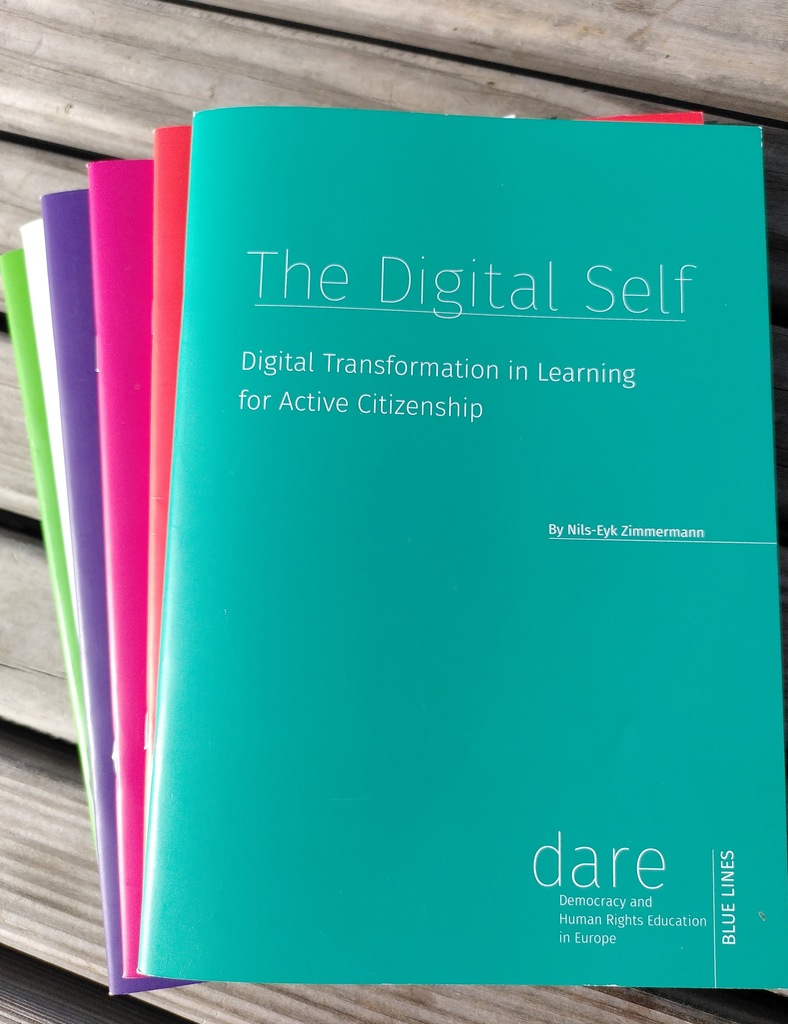
The question of how digitalisation instigates changes to our body, our social identity and our self-image is becoming apparent. This chapter describes the conditions and aspects constituting a digital identity. One important aspect is the machine-human relationship and its underlying constructive conditions. Another is the identificatory aspect of digital technology “ the tension between privacy and identifiability (and for whom), and also we need to explore mechanisms of exclusion and inclusion. Therefore, digital transformation has an impact on the ideas of privacy and autonomy and how they might be achieved in the digital social reality, especially under the conditions that big data and datafication create. The second part tackles the question of how the exposure to and embeddedness in digital interaction affects the abilities and attitudes of us as individuals.
E-Governance
S. Valdmaa, M. A. Udikas (ed.), 48 p.
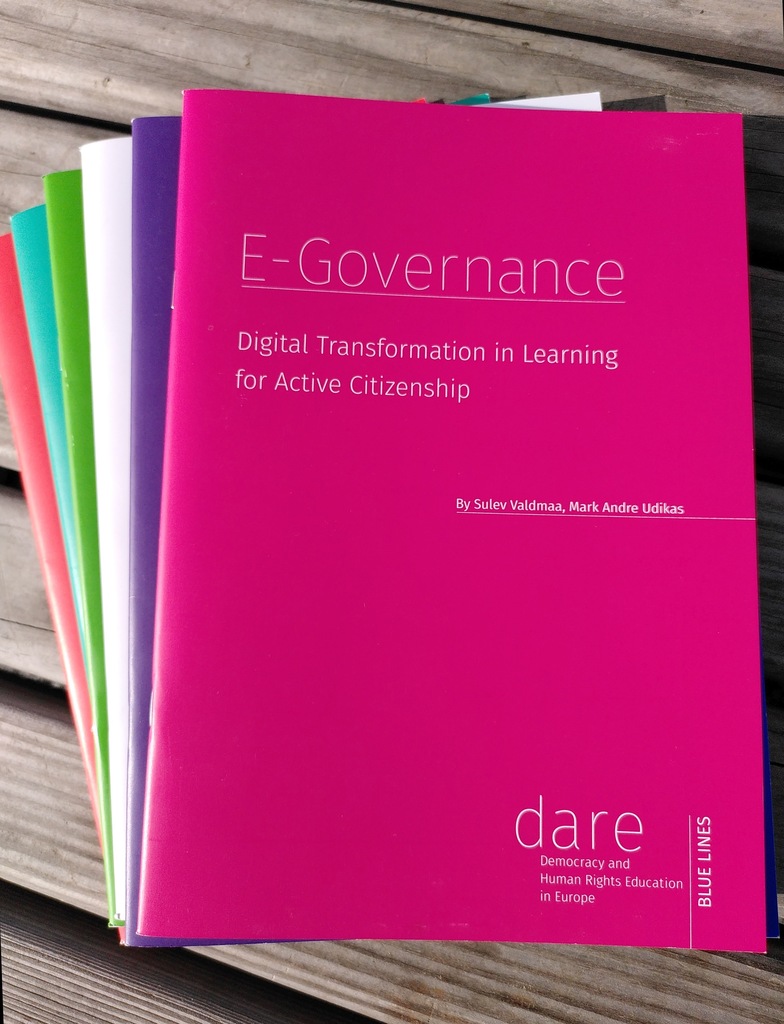
The digital transition in regard to governments has made all societies focus on security, democracy and data protection issues. In some countries, digitalisation has moved more quickly and is more wide-spread than in others. However, digitalisation has become an unstoppable process, and it is most useful to analyse all kinds of threats and risks and evaluate already existing experiences and achievements in e-government. Estonia is considered to be one of the pioneers and pathfinders in the digital transition of public services and infrastructure, as it was one of the first to start developing e-governance with wide digital possibilities. We introduce, how Estonia has established its e-society and changed also the understanding of people as (digital) citizens with access to tools and platforms that have become essential to participate in society. In consequence, everybody today needs digital citizenship skills to fully participate in the social life of their communities.
The Internet, Big Data & Platforms
N. Zimmermann (ed.), 68 p.
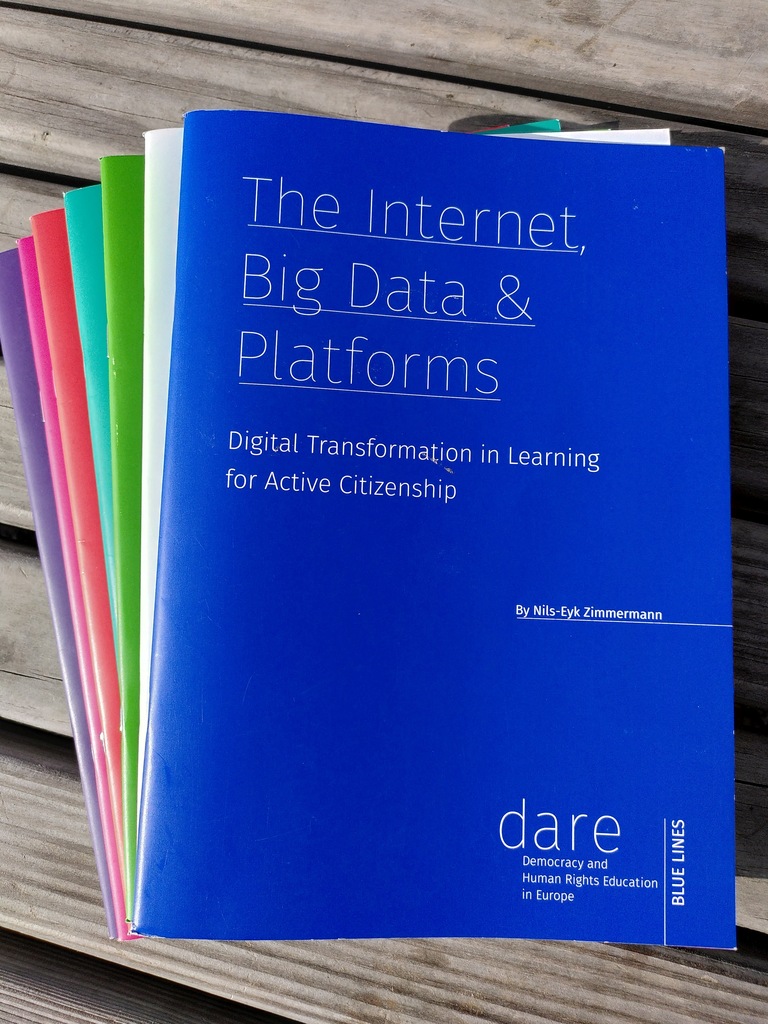
The current digital transformation is rooted in earlier digitalisation in different parts of society. In particular, the emergence of the non-centralised internet, globalisation, networked technology, technical advancement, new ways of networked collaboration and the vision of ubiquitous computing have abetted the transformation toward the dominant topics in discourse around digital transformation today. Topics like the platform economy, big data and artificial intelligence. But the Internet has also helped other ideas break through, in particular, new open and non-centralised models of creation, communication and collaboration. As a global infrastructure, there is also an environmental impact associated with the physical network of cables, satellites, data centres, and antennas. In this publication, we introduce some of these fundamental topics.
Education & Learning
R. Martinez, D. Kolarova, G. Pirker (ed.), 88 p.
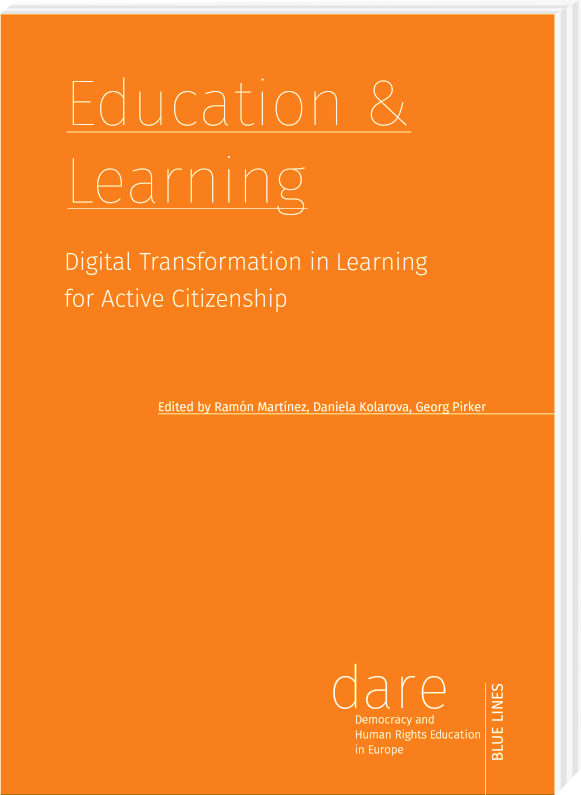
Digital transformation has an impact on learning in all ages and situations and is influencing the education and training sector. Education for Democratic Citizenship and Human Rights Education can play a specific role in this transformation and this focus might also affect what kind of digital competencies education is aiming to facilitate. Certainly the education sector itself is a space where digital instruments are more and more included. Therefore the brochure is asking what characterizes digital didactics and digital learning describe, especially in relation and complementary to “analogue” learning spaces. It ends with an outlook to the new practices in the field of recognition of learning – open badges and micro-credentialing.
Activism & Participation
E Rapetti, R. Caldas (ed.), 52 p.
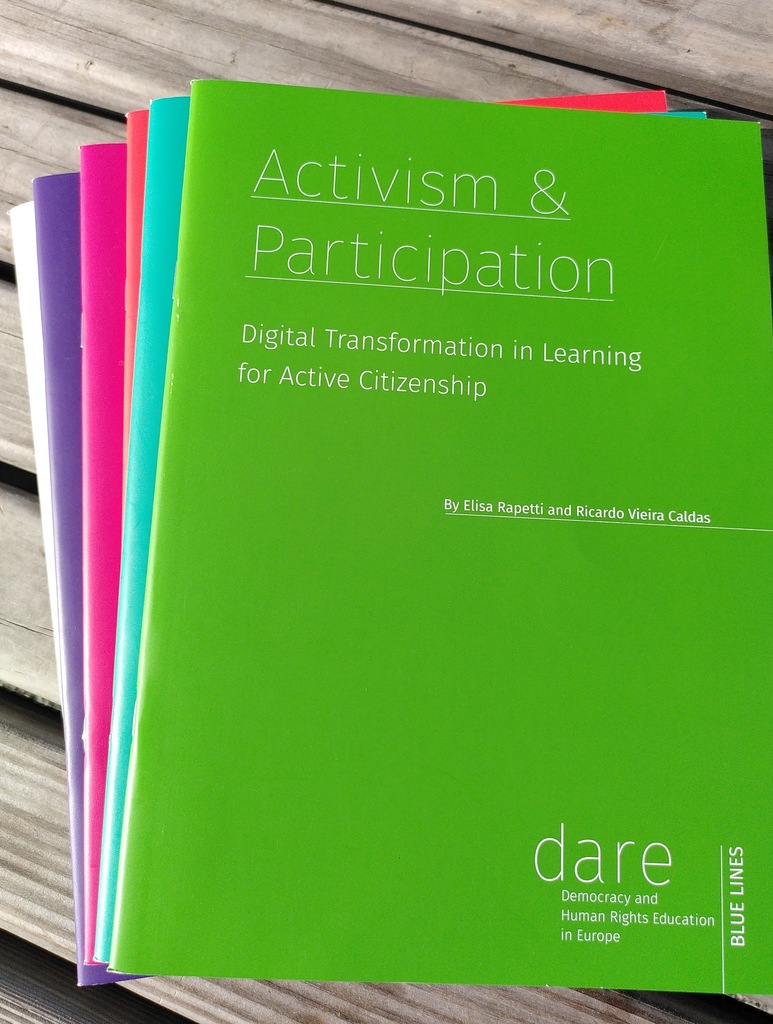
Social movements’ transform (digitally) and also the idea and ways of active participation. The authors underline the relevance of both online and offline forms of participation in a world where (hack)tivists and movements play an increasingly major role in local communities and in the global processes.
From the tech universe to social feminist organizations, they highlight movements that have mapped out an important path in empowering citizens and brought citizens’ voices into the public. The brochure concludes with some reflection about how participation will change in the future and about the necessary competences for participation of citizens under the conditions of the (digital) transformation age.
Arts & Culture
G. Pirker (ed.), 72 p.
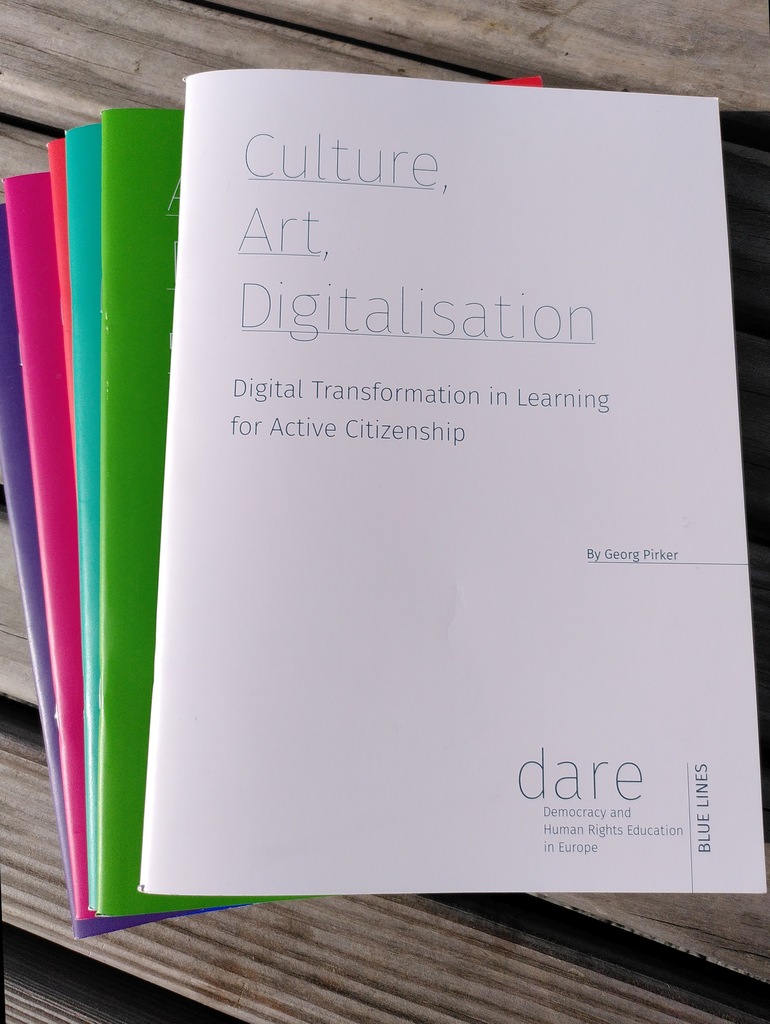
Digital Transformation impacts the field of arts and culture, but how do artists understand and explore digitalisation? The brochure explores how artists and art research are discussing the transformative process and to what initiatives and new dimensions of culture it could lead.
On example of various practices it investigates the arts undergoing a change far beyond the field of production and “consumption”, exposing us to new philosophical frontiers of our understanding of nature and culture. Furthermore, it explores deeper what kind of questions and approaches arts and culture could offer also for civic education.

